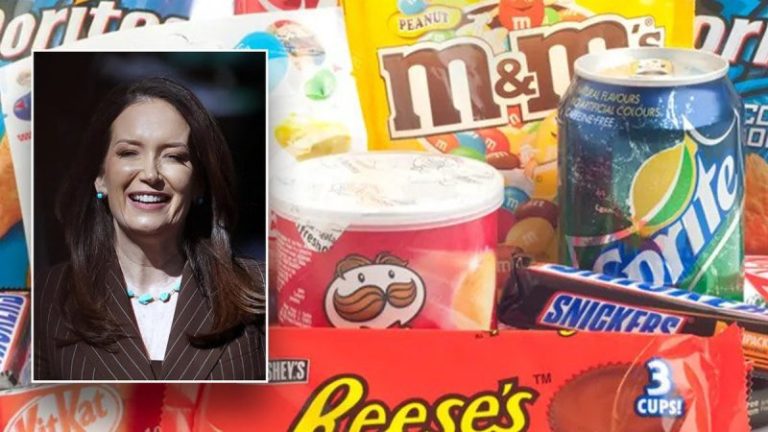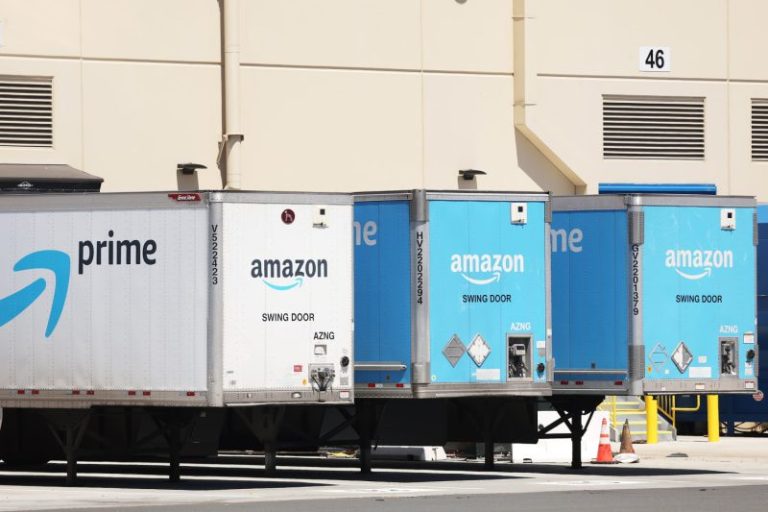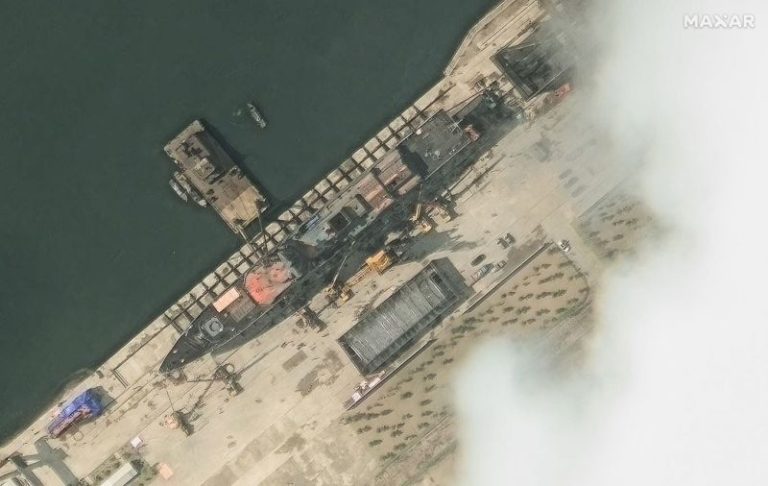It took six months, countless hours on hold and intervention from state regulators before Sue Cover says she finally resolved an over $1,000 billing dispute with UnitedHealthcare in 2023.
Cover, 46, said she was overbilled for emergency room visits for her and her son, along with a standard ultrasound. While Cover said her family would eventually have been able to pay the sum, she said it would have been a financial strain on them.
Cover, a San Diego benefits advocate, said she had conversations with UnitedHealthcare that “felt like a circular dance.” Cover said she picked through dense policy language and fielded frequent calls from creditors. She said the experience felt designed to exhaust patients into submission.
“It sometimes took my entire day of just sitting on the phone, being on hold with the hospital or the insurance company,” Cover said.
Cover’s experience is familiar to many Americans. And it embodies rising public furor toward insurers and in particular UnitedHealthcare, the largest private health insurer in the U.S., which has become the poster child for problems with the U.S. insurance industry and the nation’s sprawling health-care system.
The company and other insurers have faced backlash from patients who say they were denied necessary care, providers who say they are buried in red tape and lawmakers who say they are alarmed by its vast influence.
UnitedHealthcare in a statement said it is working with Cover’s provider to “understand the facts of these claims.” The company said it is “unfortunate that CNBC rushed to publish this story without allowing us and the provider adequate time to review.” CNBC provided the company several days to review Cover’s situation before publication.
Andrew Witty, CEO of UnitedHealthcare’s company, UnitedHealth Group, stepped down earlier this month for what the company called “personal reasons.” Witty had led the company through the thick of public and investor blowback. The insurer also pulled its 2025 earnings guidance this month, partly due to rising medical costs, it said.
UnitedHealth Group is by far the biggest company in the insurance industry by market cap, worth nearly $275 billion. It controls an estimated 15% of the U.S. health insurance market, serving more than 29 million Americans, according to a 2024 report from the American Medical Association. Meanwhile, competitors Elevance Health and CVS Health control an estimated 12% of the market each.
It’s no surprise that a company with such a wide reach faces public blowback. But the personal and financial sensitivity of health care makes the venom directed at UnitedHealth unique, some experts told CNBC.
Shares of UnitedHealth Group are down about 40% this year following a string of setbacks for the company, despite a temporary reprieve sparked in part by share purchases by company insiders. In the last month alone, UnitedHealth Group has lost nearly $300 billion of its $600 billion market cap following Witty’s exit, the company’s rough first-quarter earnings and a reported criminal probe into possible Medicare fraud.
In a statement about the investigation, UnitedHealth Group said, “We stand by the integrity of our Medicare Advantage program.”
Over the years, UnitedHealthcare and other insurers have also faced numerous patient and shareholder lawsuits and several other government investigations.
UnitedHealth Group is also contending with the fallout from a February 2024 ransomware attack on Change Healthcare, a subsidiary that processes a significant portion of the country’s medical claims.
More recently, UnitedHealthcare became a symbol for outrage toward insurers following the fatal shooting of its CEO, Brian Thompson, in December. Thompson’s death reignited calls to reform what many advocates and lawmakers say is an opaque industry that puts profits above patients.
The problems go deeper than UnitedHealth Group: Insurers are just one piece of what some experts call a broken U.S. health-care system, where many stakeholders, including drugmakers and pharmacy benefit managers, are trying to balance patient care with making money. Still, experts emphasized that insurers’ cost-cutting tactics — from denying claims to charging higher premiums — can delay or block crucial treatment, leave patients with unexpected bills, they say, or in some cases, even mean the difference between life and death.
In a statement, UnitedHealthcare said it is ″unfortunate that CNBC appears to be drawing broad conclusions based on a small number of anecdotes.”
Frustration with insurers is a symptom of a broader problem: a convoluted health-care system that costs the U.S. more than $4 trillion annually.
U.S. patients spend far more on health care than people anywhere else in the world, yet have the lowest life expectancy among large, wealthy countries, according to the Commonwealth Fund, an independent research group. Over the past five years, U.S. spending on insurance premiums, out-of-pocket co-payments, pharmaceuticals and hospital services has also increased, government data show.
While many developed countries have significant control over costs because they provide universal coverage, the U.S. relies on a patchwork of public and private insurance, often using profit-driven middlemen to manage care, said Howard Lapin, adjunct professor at the University of Illinois Chicago School of Law.
But the biggest driver of U.S. health spending isn’t how much patients use care — it’s prices, said Richard Hirth, professor of health management and policy at the University of Michigan.
There is “unbelievable inflation of the prices that are being charged primarily by hospitals, but also drug companies and other providers in the system,” said Sabrina Corlette, co-director of the Center on Health Insurance Reforms at Georgetown University.
Lapin said factors such as overtreatment, fraud, health-care consolidation and administrative overhead raise costs for payers and providers, who then pass those on through higher prices. U.S. prescription drug prices are also two to three times higher than those in other developed countries, partly due to limited price regulation and pharmaceutical industry practices such as patent extensions.
While patients often blame insurers, the companies are only part of the problem. Some experts argue that eliminating their profits wouldn’t drastically lower U.S. health-care costs.
Still, UnitedHealthcare and other insurers have become easy targets for patient frustration — and not without reason, according to industry experts.
Their for-profit business model centers on managing claims to limit payouts, while complying with regulations and keeping customers content. That often means denying services deemed medically unnecessary, experts said. But at times, insurers reject care that patients need, leaving them without vital treatment or saddled with hefty bills, they added.
Insurers use tools such as deductibles, co-pays, and prior authorization — or requiring approval before certain treatments — to control costs. Industry experts say companies are increasingly relying on artificial intelligence to review claims, and that can sometimes lead to inaccurate denials.
“It’s all part of the same business model — to avoid paying as many claims as possible in a timely fashion,” said Dylan Roby, an affiliate at the UCLA Center for Health Policy Research.
While other private U.S. insurers employ many of the same tactics, UnitedHealth Group appears to have faced the most public backlash due to its size and visibility.
UnitedHealth Group’s market value dwarfs the sub-$100 billion market caps of competitors such as CVS, Cigna and Elevance. UnitedHealth Group booked more than $400 billion in revenue in 2024 alone, up from roughly $100 billion in 2012.
It has expanded into many parts of the health-care system, sparking more criticism of other segments of its business — and the company’s ability to use one unit to benefit another.
UnitedHealth Group grew by buying smaller companies and building them into its growing health-care business. The company now serves nearly 150 million people and controls everything from insurance and medical services to sensitive health-care data.
UnitedHealth Group owns a powerful pharmacy benefit manager, or PBM, called Optum Rx, which gives it even more sway over the market.
PBMs act as middlemen, negotiating drug rebates on behalf of insurers, managing lists of drugs covered by health plans and reimbursing pharmacies for prescriptions. But lawmakers and drugmakers accuse them of overcharging plans, underpaying pharmacies and failing to pass savings on to patients.
Owning a PBM gives UnitedHealth Group control over both supply and demand, Corlette said. Its insurance arm influences what care is covered, while Optum Rx determines what drugs are offered and at what price. UnitedHealth Group can maximize profits by steering patients to lower-cost or higher-margin treatments and keeping rebates, she said.
The company’s reach goes even further, Corlette added: Optum Health now employs or affiliates with about 90,000 doctors — nearly 10% of U.S. physicians — allowing UnitedHealth Group to direct patients to its own providers and essentially pay itself for care.
A STAT investigation last year found that UnitedHealth uses its physicians to squeeze profits from patients. But the company in response said its “providers and partners make independent clinical decisions, and we expect them to diagnose and document patient information completely and accurately in compliance with [federal] guidelines.”
Other insurers, such as CVS and Cigna, also own large PBMs and offer care services. But UnitedHealth Group has achieved greater scale and stronger financial returns.
“I think the company is certainly best in class when it comes to insurers, in terms of providing profits for shareholders,” said Roby. “But people on the consumer side probably say otherwise when it comes to their experience.”
No one knows exactly how often private insurers deny claims, since they aren’t generally required to report that data. But some analyses suggest that UnitedHealthcare has rejected care at higher rates than its peers for certain types of plans.
A January report by nonprofit group KFF found that UnitedHealthcare denied 33% of in-network claims across Affordable Care Act plans in 20 states in 2023, one of the highest rates among major insurers. CVS denied 22% of claims across 11 states, and Cigna denied 21% in eight states.
UnitedHealth did not respond to a request for comment on that report. But in December, the company also pushed back on public criticism around its denial rates, saying it approves and pays about 90% of claims upon submission. UnitedHealthcare’s website says the remaining 10% go through an additional review process. The company says its claims approval rate stands at 98% after that review.
In addition, UnitedHealth Group is facing lawsuits over denials. In November, families of two deceased Medicare Advantage patients sued the company and its subsidiary, alleging it used an AI model with a “90% error rate” to deny their claims. UnitedHealth Group has argued it should be dismissed from the case because the families didn’t complete Medicare’s appeals process.
A spokesperson for the company’s subsidiary, NaviHealth, also previously told news outlets that the lawsuit “has no merit” and that the AI tool is used to help providers understand what care a patient may need. It does not help make coverage decisions, which are ultimately based on the terms of a member’s plan and criteria from the Centers for Medicare & Medicaid Services, the spokesperson said.
Meanwhile, the reported Justice Department criminal probe outlined by the Wall Street Journal targets the company’s Medicare Advantage business practices. In its statement, the company said the Justice Department has not notified it about the reported probe, and called the newspaper’s reporting “deeply irresponsible.”
Inside the company, employees say customers and workers alike face hurdles.
One worker, who requested anonymity for fear of retaliation, said UnitedHealthcare’s provider website often includes doctors listed as in-network or accepting new patients when they’re not, leading to frequent complaints. Management often replies that it’s too difficult to keep provider statuses up to date, the person said.
UnitedHealthcare told CNBC it believes “maintaining accurate provider directories is a shared responsibility among health plans and providers,” and that it “proactively verifies provider data on a regular basis.” The vast majority of all inaccuracies are due to errors or lack of up-to-date information submitted by providers, the company added.
Emily Baack, a clinical administrative coordinator at UMR, a subsidiary of UnitedHealthcare, criticized the length of time it can take a provider to reach a real support worker over the phone who can help assess claims or prior authorization requests. She said the company’s automated phone system can misroute people’s calls or leave them waiting for a support person for over an hour.
But Baack emphasized that similar issues occur across all insurance companies.
She said providers feel compelled to submit unnecessary prior authorization requests out of fear that claims won’t be paid on time. Baack said that leads to a massive backlog of paperwork on her end and delays care for patients.
UnitedHealthcare said prior authorization is “an important checkpoint” that helps ensure members are receiving coverage for safe and effective care.
The company noted it is “continually taking action to simplify and modernize the prior authorization process.” That includes reducing the number of services and procedures that require prior authorization and exempting qualified provider groups from needing to submit prior authorization requests for certain services.
While UnitedHealthcare is not the only insurer facing criticism from patients, Thompson’s killing in December reinforced the company’s unique position in the public eye. Thousands of people took to social media to express outrage toward the company, sharing examples of their own struggles.
The public’s hostile reaction to Thompson’s death did not surprise many industry insiders.
Alicia Graham, co-founder and chief operating officer of the startup Claimable, said Thompson’s murder was “a horrible crime.” She also acknowledged that anger has been bubbling up in various online health communities “for years.”
Claimable is one of several startups trying to address pain points within insurance. It’s not an easy corner of the market to enter, and many of these companies, including Claimable, have been using the AI boom to their advantage.
Claimable, founded in 2024, said it helps patients challenge denials by submitting customized, AI-generated appeal letters on their behalf. The company can submit appeals for conditions such as migraines and certain pediatric and autoimmune diseases, though Graham said it is expanding those offerings quickly.
Many patients aren’t aware that they have a right to appeal, and those who do can spend hours combing through records to draft one, Graham said. If patients are eligible to submit an appeal letter through Claimable, she said they can often do so in minutes. Each appeal costs users $39.95 plus shipping, according to the company’s website.
“A lot of patients are afraid, a lot of patients are frustrated, a lot of patients are confused about the process, so what we’ve tried to do is make it all as easy as possible,” Graham told CNBC.
Some experts have warned about the possibility of health-care “bot wars,” where all parties are using AI to try to gain an edge.
Mike Desjadon, CEO of the startup Anomaly, said he’s concerned about the potential for an AI arms race in the sector, but he remains optimistic. Anomaly, founded in 2020, uses AI to help providers determine what insurers are and aren’t paying for in advance of care, he said.
“I run a technology company and I want to win, and I want our customers to win, and that’s all very true, but at the same time, I’m a citizen and a patient and a husband and a father and a taxpayer, and I just want health care to be rational and be paid for appropriately,” Desjadon told CNBC.
Dr. Jeremy Friese, founder and CEO of the startup Humata Health, said patients tend to interact with insurers only once something goes wrong, which contributes to their frustrations. Requirements such as prior authorization can be a “huge black box” for patients, but they’re also cumbersome for doctors, he said.
Friese said his business was inspired by his work as an interventional radiologist. In 2017, he co-founded a prior-authorization company called Verata Health, which was acquired by the now-defunct health-care AI startup Olive. Friese bought back his technology and founded his latest venture, Humata, in 2023.
Humata uses AI to automate prior authorization for all specialties and payers, Friese said. The company primarily works with medium and large health systems, and it announced a $25 million funding round in June.
“There’s just a lot of pent-up anger and angst, frankly, on all aspects of the health-care ecosystem,” Friese told CNBC.
UnitedHealth Group also set a grim record last year that did little to help public perception. The company’s subsidiary Change Healthcare suffered a cyberattack that affected around 190 million Americans, the largest reported health-care data breach in U.S. history.
Change Healthcare offers payment and revenue cycle management tools, as well as other solutions, such as electronic prescription software. In 2022, it merged with UnitedHealth Group’s Optum unit, which touches more than 100 million patients in the U.S.
In February 2024, a ransomware group called Blackcat breached part of Change Healthcare’s information technology network. UnitedHealth Group isolated and disconnected the affected systems “immediately upon detection” of the threat, according to a filing with the U.S. Securities and Exchange Commission, but the ensuing disruption rocked the health-care sector.
Money stopped flowing while the company’s systems were offline, so a major revenue source for thousands of providers across the U.S. screeched to a halt. Some doctors pulled thousands of dollars out of their personal savings to keep their practices afloat.
“It was and remains the largest and most consequential cyberattack against health care in history,” John Riggi, the national advisor for cybersecurity and risk at the American Hospital Association, told CNBC.
Ransomware is a type of malicious software that blocks victims from accessing their computer files, systems and networks, according to the Federal Bureau of Investigation. Ransomware groups such as Blackcat, which are often based in countries such as Russia, China and North Korea, will deploy this software, steal sensitive data and then demand a payment for its return.
Ransomware attacks within the health-care sector have climbed in recent years, in part because patient data is valuable and relatively easy for cybercriminals to exploit, said Steve Cagle, CEO of the health-care cybersecurity and compliance firm Clearwater.
“It’s been a very lucrative and successful business for them,” Cagle told CNBC. “Unfortunately, we’ll continue to see that type of activity until something changes.”
UnitedHealth Group paid the hackers a $22 million ransom to try to protect patients’ data, then-CEO Witty said during a Senate hearing in May 2024.
In March 2024, UnitedHealth Group launched a temporary funding assistance program to help providers with short-term cash flow.
The program got off to a rocky start, several doctors told CNBC, and the initial deposits did not cover their mounting expenses.
UnitedHealth Group ultimately paid out more than $9 billion to providers in 2024, according to the company’s fourth-quarter earnings report in January.
Witty said in his congressional testimony that providers would only be required to repay the loans when “they, not me, but they confirm that their cash flow is normalized.”
Almost a year later, however, the company is aggressively going after borrowers, demanding they “immediately repay” their outstanding balances, according to documents viewed by CNBC and providers who received funding. Some groups have been asked to repay hundreds of thousands of dollars in a matter of days, according to documents viewed by CNBC.
A spokesperson for Change Healthcare confirmed to CNBC in April that the company has started recouping the loans.
″We continue to work with providers on repayment and other options, and continue to reach out to those providers that have not been responsive to previous calls or email requests for more information,” the spokesperson said.
The pressure for repayment drew more ire toward UnitedHealth Group on social media, and some providers told CNBC that dealing with the company was a “very frustrating experience.”
The vast majority of Change Healthcare’s services have been restored over the last year, but three products are still listed as “partial service available,” according to UnitedHealth’s cyberattack response website.
Witty’s departure and the company’s warning about elevated medical costs, combined with the fallout from Thompson’s murder and the Change Healthcare cyberattack, could mean UnitedHealth faces an uphill battle.
UnitedHealth Group appears to be trying to regain the public’s trust. For example, Optum Rx in March announced plans to eliminate prior authorizations on dozens of drugs, easing a pain point for physicians and patients.
But policy changes at UnitedHealth Group and other insurers may not drastically improve care for patients, health insurance industry experts previously told CNBC.
They said there will need to be structural changes to the entire insurance industry, which will require legislation that may not be high on the priority list for the closely divided Congress.
The spotlight on UnitedHealth Group may only grow brighter in the coming months. The trial date for Luigi Mangione, the man facing federal stalking and murder charges in connection with Thompson’s shooting, is expected to be set in December. Mangione has pleaded not guilty to the charges.
This post appeared first on NBC NEWS










